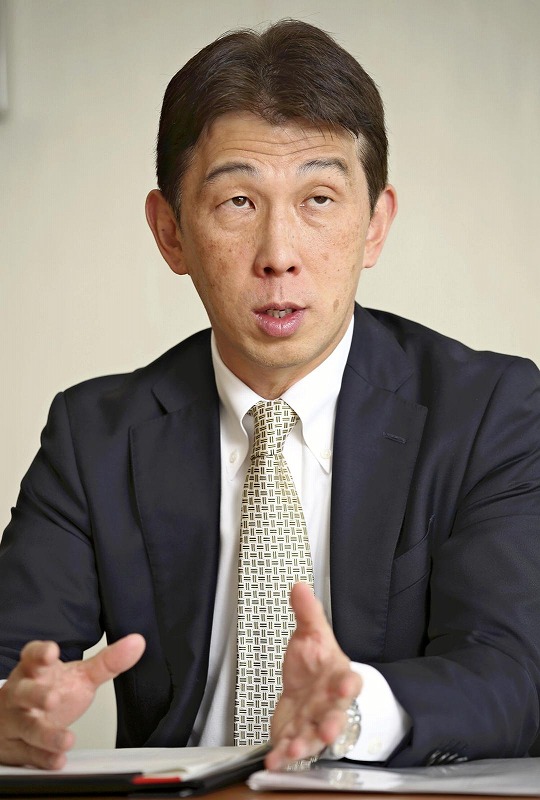Japan’s Mitsubishi UFJ Trust and Banking to Issue Stablecoin; President Says Trust Bank Now in Final Adjustment Phase

Now Mitsubishi UFJ Trust and Banking Corp. President Hiroshi Kubota speaks to The Yomiuri Shimbun before officially taking the post, in Chiyoda Ward, Tokyo, on March 24.
17:08 JST, April 9, 2025
Mitsubishi UFJ Trust and Banking Corp. plans to begin issuing a stablecoin, which is a type of cryptocurrency whose prices are tied to the value of legal tender, in the near future, trust bank President Hiroshi Kubota said in an interview with The Yomiuri Shimbun.
Kubota, 55, who took up the post on April 1, said the development of the system to handle the stablecoin was completed last year. He said the trust bank is now in the final adjustment phase.
Mitsubishi UFJ Trust and Banking collaborated with Progmat Inc., one of its group firms, to develop the platform.
The trust bank plans to initially utilize the stablecoin in carbon credit trading, which will allow companies to trade the amount of greenhouse gasses they are permitted to emit as a measure to combat climate change, and then move on to trade payment settlements and other financial exchanges.
As stablecoins use blockchain, which is a system that digitally records transactions in a network, multiple banks are not involved in financial transactions, so traders do not need to pay large commission fees.
“[Stablecoins] are inexpensive and payments can be settled more quickly,” Kubota said. “This is ground-breaking and can contribute to solving societal problems.”
Kubota said Mitsubishi UFJ Trust and Banking aims to earn a gross profit of ¥30 billion in 2034 through the stablecoin, joint projects with startups and other new business ventures.
“Meeting the needs of society can lead to big business opportunities,” he said. “Unless we continue exploring new businesses, our company’s meaning of existence will be lost.”
Kubota also became chairman of the Trust Companies Association of Japan this month.
In recent years, there has been a rise in demand from companies to know more information about their institutional investors, who have voting rights at shareholders meetings. Such institutional investors are dubbed “substantive shareholders.”
As a result, trust banks have been placing more importance on securities transfer agency businesses, such as the management of companies’ lists of shareholders.
On this point, Kubota said, “While competing [with other trust banks], if there is something we can do together, we want to cooperate.”
Top Articles in Business
-

Prudential Life Insurance Plans to Fully Compensate for Damages Caused by Fraudulent Actions Without Waiting for Third-Party Committee Review
-

Narita Airport, Startup in Japan Demonstrate Machine to Compress Clothes for Tourists to Prevent People from Abandoning Suitcases
-

Japan, U.S. Name 3 Inaugural Investment Projects; Reached Agreement After Considerable Difficulty
-

Toyota Motor Group Firm to Sell Clean Energy Greenhouses for Strawberries
-

Japan’s Major Real Estate Firms Expanding Overseas Businesses to Secure Future Growth, Focusing on Europe, U.S., Asia
JN ACCESS RANKING
-

Producer Behind Pop Group XG Arrested for Cocaine Possession
-

Japan PM Takaichi’s Cabinet Resigns en Masse
-

Man Infected with Measles Reportedly Dined at Restaurant in Tokyo Station
-

Israeli Ambassador to Japan Speaks about Japan’s Role in the Reconstruction of Gaza
-

Videos Plagiarized, Reposted with False Subtitles Claiming ‘Ryukyu Belongs to China’; Anti-China False Information Also Posted in Japan






















